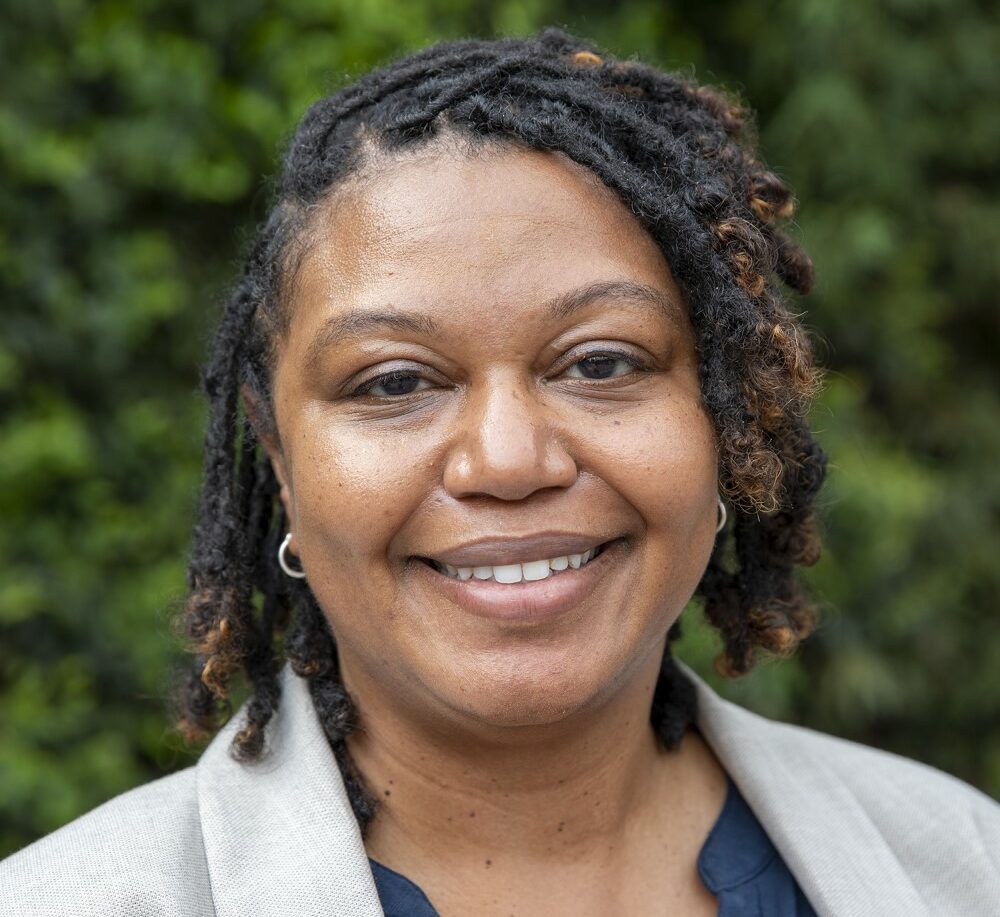
Q&A with Associate Director Shameka Allen
This month Shameka Allen, our Associate Director at the Good Samaritan Health Centers of Gwinnett (Good Sam Gwinnett), will celebrate her first year in this role. She came to Good Sam Gwinnett with 20 years of experience in the medical and retail fields and has a passion for learning about different cultures. Our patient population represents at least 67 countries worldwide, making our clinics an excellent environment for our providers to learn about other cultures and share their faith.
Shameka has helped our organization grow by handling day-to-day operations, interviewing and hiring more staff, and initiating partnerships in our community. She has been working behind the scenes for a while, but we would like you to get to know her better. Read more about her background and passion for Good Sam Gwinnett in this Q&A.
Tell us a little about your background.
Shameka: I am a Georgia native, and I completed my bachelor’s degree at Emory University in French studies. After leaving Emory, I spent many years in retail operations and completed some federal contracting work in the D.C. area. I went back to school in 2007 and received a master’s degree in international relations. I love to study and learn about different cultures; I like to call this subject my first love! After completing many more years in operations, I decided to go back to school and earned my MBA from the University of Georgia. Shortly after receiving this degree, I was introduced to the healthcare field, and I have never looked back!
I started my healthcare journey in 2018 as Regional Director for a dialysis company on the Southside of Metro Atlanta, which has ultimately led me here to Good Sam Gwinnett.
What brought you to the nonprofit healthcare space?
Shameka: I had spent most of my time in healthcare in the private practice sector, and I came to understand the many challenges that healthcare providers face when navigating third-party reimbursement options for patients. When I learned about Good Sam Gwinnett and the model that we have in place, I was truly excited to get on board. Here, our patients play an active role in managing their healthcare outcomes. We have the flexibility to provide care solutions that are needed in our community with less red tape than you would find in for-profit environments. As a result, we can help those who would normally have little to no access to healthcare a chance to not only survive but thrive.
What about your new role is most rewarding?
Shameka: What I enjoy most is the faith-based aspect of our clinic. We start our day with prayer, and we can pray with our patients if they feel comfortable. When a patient is dealing with a crisis in their life, we can provide additional comfort outside of just providing medication. In addition to praying with them, we can also assess whether they are good candidates for pastoral counseling as well as provide information about our community partners who may be able to assist as well.
What has surprised you the most about GSHCG?
Shameka: We are more than just a primary care clinic. When I first expressed interest in the role, I thought it was more about providing traditional care with a faith-based component. What I have learned is that our staff goes above and beyond to make sure that our patients feel valued and respected. We offer care coordination that has a personal touch, and our specialty volunteer physicians are just as loyal to our clinic as our paid staff.
Where do you see the organization going in the next five years?
Shameka: I see Good Sam Gwinnett continuing to provide outstanding care to those in Gwinnett County and beyond. We would love to continue to expand our reach into the community, whether that is through additional clinics like we have now, specialty clinics, or diving deeper into workforce development and education. Good Sam Gwinnett would like to see other communities who are struggling as primary health care deserts be able to implement a similar model wherever they are to help provide access to many others.


